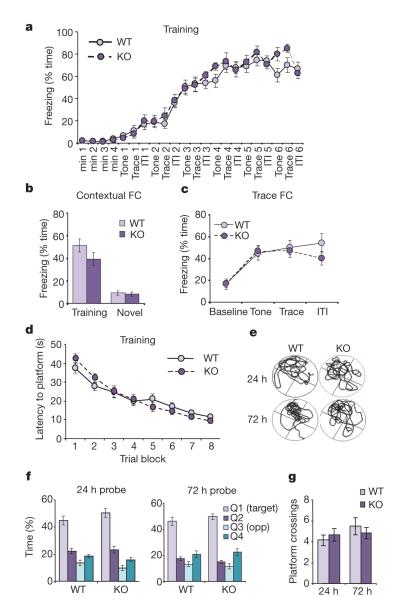Figure 4. Hippocampal-dependent learning and memory are intact in PKC-ζ/PKM-ζ KO mice.
a, Trace fear conditioning elicits freezing in PKC-ζ/PKM-ζ KO (n=13) and WT (n=15) mice with no significant main effect of genotype (F(1,546)=0.50, P>0.48). ITI, inter-trial interval. b, WT and PKC-ζ/PKM-ζ KO mice exhibit similar contextual freezing behaviour (24 h post-training, WT=51.5±5.7%, KO=39.3±5.7%, PWT vs KO>0.16; significant elevation in post-training vs pre-training freezing, P<0.05 for WT and KO), but show little freezing in a novel context (48 h post-training, WT±9.3±1.8%, KO=8.5±1.9%, WT and KO P>0.05 vs pre-training freezing). c, Trace fear conditioning is unaffected in PKC-ζ/PKM-ζ KO mice 48 h after training (no significant main effect of genotype, F(1, 78)=0.33, P>0.57). d, Mean escape latencies during Morris water maze training (WT n=21, KO n=17, no significant main effect of genotype, F(1,252)=0.00, P>0.98). e, Representative swim paths during probe trials for WT and PKC-ζ/PKM-ζ KO mice. f, Percentage of time spent in each quadrant during probe trials. Both genotypes showed a significant preference for the target quadrant at 24 (WT n=21, KO n=17) and 72 h (WT n=17, KO n=15); P<0.001 (target quadrant vs Q2, Q3 or Q4). There was no significant main effect of genotype at 24 (F(1,108)=0.79, P>0.38) or 72 h (F(1,90)=0.26, P>0.61). g, Number of platform crossings during probe trials (24 h: WT=4.14±0.52, KO=4.64±0.59, P>0.5, 72 h: WT=5.47±0.8, KO=4.80±0.54, P>0.5). Data represent mean±s.e.m.

